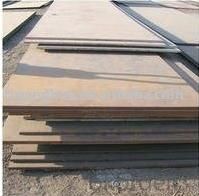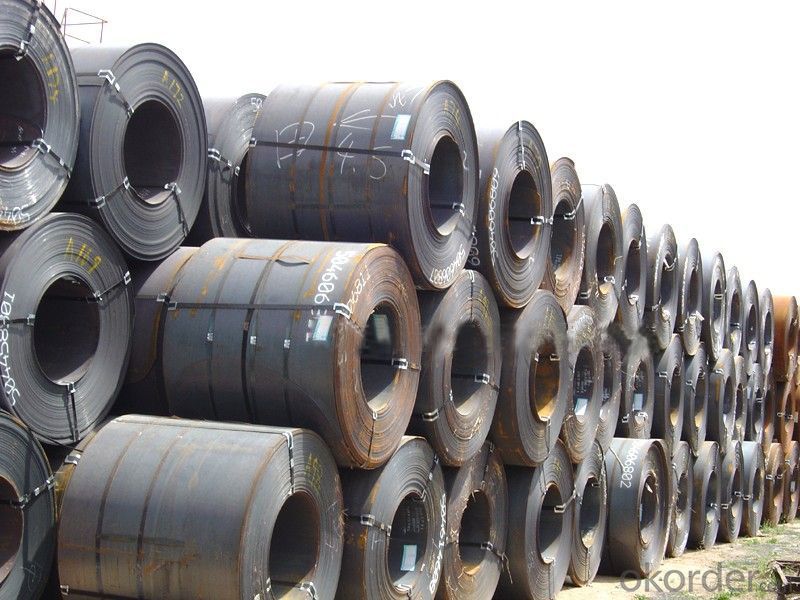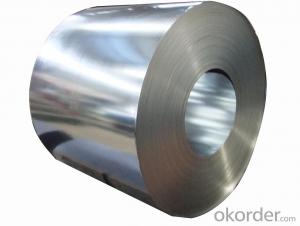Hot rolled steel coil SS400/A36/Q235 pickled and oiled steel coil
- Loading Port:
- Shanghai
- Payment Terms:
- TT OR LC
- Min Order Qty:
- 100 m.t.
- Supply Capability:
- 100000 m.t./month
OKorder Service Pledge
OKorder Financial Service
You Might Also Like
Quick Details
| Standard: | AISI, ASTM, BS, DIN, GB, JIS | Steel Grade: | Q235 | Thickness: | Thickness: 1.8mm-20mm |
| Place of Origin: | China (Mainland) | Technique: | Hot Rolled | Surface Treatment: | Other |
| Application: | Welded pipe, Hardeware and Bicycle manufacturing and so on | Model Number: | Steel Coil | Brand Name: | RGTS |
| Width: | 900mm-2000mm, 900-2000mm | Length: | As your requested | Surface: | black |
| Material Grade: | SS400\Q235\Q345B | Certificate:: | ISO | Package: | in bundles, strapped by strips. Or as customer's requirement |
Packaging & Delivery
| Packaging Details: | 1) Export standard packing in mill 2) Vertical or horizontal, properly packed for ocean freight exportation in one 20' or 40' containers 3) Ocean shipping in bulk-cargo ship |
| Delivery Detail: | within 15-30 days upon receipt original L/C at sight. |


Hot Rolled Pickled and Oiled Steel Coils
1. Production: Hot Rolled Pickled and Oiled Steel Coils
2. Port: Any port,China
3. Category: Minerals & metallurgy
4. Thickness: 1.8mm-20mm
5. Width: 900-2000mm
6. Coil Weight: about 23 tons
7. Material Grade : SS400\Q235\Q345B
8. Technique: Hot Rolled
9. Standard: GB ,JIS
10. Test: With Hydraulic Testing, Eddy Current , Infrared Test
11. Surface:
1) Bared
2) Black Painted (varnish coating)
3) Galvanized
4) Oiled
12. Package: in bundles, strapped by strips. Or as customer’s requirement
13. Sample:
Common products, we can provide freely, for special production,we can depends on negotiation.
14. MOQ: 10 tons
15. Payment: 100% L/C at sight, 30% T/T in advance, and the balance against the copy of B/L or negotiation
16.Delivery time: according to quantity, asap save customer’s time
17. Certificate: ISO
- Q:What are the different types of steel coil finishing tools?
- There are several different types of steel coil finishing tools used in the metalworking industry. These tools are designed to add various finishes to steel coils, enhancing their appearance and functionality. Some of the common types of steel coil finishing tools include: 1. Slitting Machines: These tools are used to cut large steel coils into narrower strips. Slitting machines have sharp circular blades that can efficiently slice through the coil, resulting in multiple smaller coils of desired widths. 2. Levellers: Levellers are used to flatten and straighten steel coils. They apply pressure to the coil, ensuring that it is perfectly flat and even. Levellers are particularly useful when the steel coils have undergone deformation during the manufacturing process. 3. Recoilers: Recoilers are used to rewind steel coils into a tighter and more compact shape. These tools are typically used after slitting or levelling to create coils of a specific diameter or size. 4. Edge Trimmers: Edge trimmers are used to remove any excess or uneven edges from the steel coils. They can remove burrs, rough edges, or any other imperfections, resulting in a clean and smooth finish. 5. Inspection Machines: Inspection machines are used to examine the quality of the steel coils. These tools can detect any defects, such as surface imperfections, scratches, or dents, ensuring that only high-quality coils are delivered to customers. 6. Coating Machines: Coating machines are used to apply protective coatings to steel coils. These coatings can be in the form of paint, zinc, or other materials, preventing corrosion and enhancing the durability of the coils. 7. Packaging Machines: Packaging machines are used to wrap the steel coils securely and protect them during transportation and storage. These machines can apply plastic or metal straps, shrink wrap, or other packaging materials to ensure the coils remain intact and undamaged. Overall, these different types of steel coil finishing tools play a vital role in the metalworking industry, allowing manufacturers to produce high-quality and visually appealing steel coils that meet the specific requirements of their customers.
- Q:What are the different types of steel coil treatments?
- There are several types of steel coil treatments, including pickling, oiling, and galvanizing. Pickling involves immersing the steel coil in an acid bath to remove impurities and scale, resulting in a clean surface. Oiling is the process of applying a thin film of oil to the coil to prevent corrosion during storage and transportation. Galvanizing is a treatment where a layer of zinc is applied to the steel coil, providing excellent protection against corrosion.
- Q:basically a builder told us steel is good but when we got MFI, BQ they only have acrylic
- Steel is expensive and heavy - the porcelain finish can be chipped and scratched. Yes it is colder - like your cook pots. Acrylic is cheaper, lighter and easier to handle for the installer. It can get scratched. There are companies that can refinish an old tub by putting an acrylic liner over it instead of removing and replacing the old steel ones. Acrylic has come a long way. But I still prefer steel.
- Q:What is the process of pickling and oiling steel coils?
- The process of pickling and oiling steel coils involves several steps. First, the steel coils are immersed in a pickling bath containing a mixture of acids to remove any impurities, scale, and rust from the surface of the steel. This helps to improve the quality and appearance of the steel. After pickling, the coils are rinsed with water to remove any residual acid. Next, the coils are coated with a thin layer of oil. This oil acts as a protective barrier, preventing the steel from rusting or corroding during storage, transportation, and further processing. The oil also helps to enhance the surface finish of the steel. The pickled and oiled steel coils are then typically rolled or processed further according to specific requirements. This could involve additional annealing, cold rolling, or other treatments to achieve the desired properties or dimensions. Overall, the pickling and oiling process is crucial in preparing steel coils for various applications, ensuring they are clean, corrosion-resistant, and ready for further processing or use.
- Q:I know that mild steel is more brittle than cast iron....but that is all.......please help??Thank you in advance......Ruby:D
- I know that mild steel is more brittle than cast iron You know wrong - cast iron is very brittle and mild steel is easy to bend and work. Cast iron is a high carbon product while mild steel is much lower carbon
- Q:How do steel coils contribute to the marine vessel construction industry?
- The marine vessel construction industry heavily relies on steel coils as vital components. These coils, typically made of high-quality steel, are crucial for fabricating various structural elements of ships and boats. They are utilized in multiple ways to contribute to the construction and functionality of marine vessels. To begin with, steel coils are essential for constructing the hull, which serves as the main body of the ship. Given the harsh conditions at sea, such as waves, corrosion, and impacts, the hull requires strong and durable materials. Steel coils provide the necessary strength and integrity to ensure the structural stability and safety of the vessel. Furthermore, steel coils are utilized in fabricating decks, bulkheads, and other internal structures of marine vessels. These components are vital for dividing the ship into compartments, providing stability, and supporting various equipment and machinery. Steel coils, known for their excellent tensile strength, can bear heavy loads and resist deformation, making them ideal for constructing these crucial elements. In addition, steel coils are employed in the construction of propulsion systems and other mechanical parts of marine vessels. These coils are often shaped and formed into specific components, such as shafts, gears, and propellers, which are essential for the vessel's propulsion and maneuverability. The high strength and durability of steel coils ensure the reliability and efficiency of these mechanical systems, enabling smooth navigation and operation of the vessel. Moreover, steel coils contribute to the marine vessel construction industry by enhancing safety and longevity. Steel is highly resistant to corrosion, a major concern in marine environments due to saltwater exposure. By utilizing steel coils, marine vessels can withstand the corrosive effects of seawater, reducing the need for frequent maintenance and repair. This, in turn, improves the vessel's lifespan and minimizes the risk of accidents or failures at sea. In conclusion, steel coils are indispensable in the marine vessel construction industry. They provide the necessary strength, durability, and resistance to corrosion, ensuring the safety, performance, and longevity of ships and boats. Whether it is the construction of the hull, fabrication of internal structures, or creation of mechanical components, steel coils play a vital role in every aspect of marine vessel construction.
- Q:How are steel coils used in the production of steel handles?
- Steel coils are used in the production of steel handles by being processed and shaped into the desired handle design. The coils are uncoiled and fed into a machine where they are cut, bent, and formed to create the handle shape. The coils provide the raw material needed for the manufacturing process, ensuring the handles are strong, durable, and able to withstand the required usage.
- Q:How are steel coils coated for added protection?
- To enhance their durability and resistance to corrosion, steel coils undergo a process known as coil coating, wherein a protective layer is applied onto their surfaces. There are several methods employed to coat steel coils, but the most commonly used one is the continuous coil coating process. Under this process, the steel coil is unwound and extensively cleansed to eliminate any contaminants or impurities on its surface. This step ensures proper adhesion of the coating material. Once the steel coil is cleansed, it undergoes a pre-treatment to enhance its surface properties. Typically, this involves the application of a chemical solution or a conversion coating onto the coil's surface. The aim of this step is to create a surface that is receptive to the coating material and improves its adhesion. Following the pre-treatment, the steel coil is coated with a protective layer, which can be in the form of liquid paint, powder coating, or a combination of both. The coating material is applied evenly onto the coil's surface using techniques like roll coating, spray coating, or electrostatic coating. Once the coating is applied, the steel coil is cured or dried using heat or, in some cases, ultraviolet light. This curing process ensures a strong bond between the coating material and the steel surface, resulting in the desired protective properties. The coated steel coil then undergoes inspection to ensure quality control measures like thickness, adhesion, and appearance are met. If the specifications are satisfied, further processing may take place, involving cutting, slitting, or forming the coil into the desired shape or size. In conclusion, the process of coating steel coils for added protection involves thorough cleansing, pre-treatment, application of a protective coating, curing, and quality control. This ensures that the steel coils exhibit excellent resistance to corrosion, abrasion, and other environmental factors, making them suitable for a wide range of applications across various industries.
- Q:I asked a question last week about stainless steel and got some great answers. I combed all over the internet to try to figure this one out but could not find anything. What resists bending better: chrome vanadium steel (i.e. a steel commonly used to make tools) or stainless steel 304. My guess would be the chrome vanadium alloy but thats just a guess. Which on resist's bending better and by how much (#'s please :-)). Also, if anyone knows if chrome vanadium steel is cheaper than stainless steel 304 that would be awesome? I can't find a price per pound on chrome vanadium steel anywhere! Please help. Thanks in advance-Josh
- Steel Bending Strength
- Q:What are the dimensions of steel coils used in the industrial machinery industry?
- The dimensions of steel coils used in the industrial machinery industry can vary depending on the specific application and requirements. However, generally speaking, steel coils used in this industry typically have a width ranging from 600 to 2,000 millimeters (24 to 79 inches) and a weight ranging from 2 to 25 metric tons (4,400 to 55,100 pounds). The inner diameter of the coil, known as the core, can range from 508 to 762 millimeters (20 to 30 inches). Additionally, the thickness of the steel coil can range from 0.4 to 25 millimeters (0.016 to 0.98 inches). These dimensions may be subject to variations based on the specific needs and specifications of the machinery being manufactured or used in the industrial machinery industry.
1. Manufacturer Overview |
|
|---|---|
| Location | |
| Year Established | |
| Annual Output Value | |
| Main Markets | |
| Company Certifications | |
2. Manufacturer Certificates |
|
|---|---|
| a) Certification Name | |
| Range | |
| Reference | |
| Validity Period | |
3. Manufacturer Capability |
|
|---|---|
| a)Trade Capacity | |
| Nearest Port | |
| Export Percentage | |
| No.of Employees in Trade Department | |
| Language Spoken: | |
| b)Factory Information | |
| Factory Size: | |
| No. of Production Lines | |
| Contract Manufacturing | |
| Product Price Range | |
Send your message to us
Hot rolled steel coil SS400/A36/Q235 pickled and oiled steel coil
- Loading Port:
- Shanghai
- Payment Terms:
- TT OR LC
- Min Order Qty:
- 100 m.t.
- Supply Capability:
- 100000 m.t./month
OKorder Service Pledge
OKorder Financial Service
Similar products
New products
Hot products
Related keywords




























